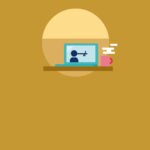Fake news and the quality of content
They say that the market doesn't tolerate ambiguity, which is the result of a lack of certainty, among other things. Rumors are a natural offshoot of the undefined, the very terrain of conspiracies and hoaxes.

How can we protect ourselves from rumors and fake news? The antidote is to nurture new critical thinking and emotional skills. Traditional education is not prepared to address this issue. A recent study found that social media is responsible for a majority of unfounded rumors in circulation today. With social media they are spread more quickly due to their illusion of truth, even though they tend to be misleading. Careful, comparative reading helps. If we are cautious and read a wide array of digital sources, we will be better equipped. This kind of critical reading is imperative for business people, politicians, and journalists, but also for anyone who doesn't want to be hoodwinked by the world wide web.
In Jason Zweig's classic edition of Benjamin Graham's The Intelligent Investor, he includes an observation about assumption-based business analysis: "That's like setting house prices based on a rumor that Cinderella will be building her new castle right around the corner.” What used to be a significant risk is even more complicated today given the increased volume of content we have to filter through.
"That's like setting house prices based on a rumor that Cinderella will be building her new castle right around the corner”
Rumors have always existed. They are a natural form of social communication. They are usually spread by word of mouth and tend to combine the truth, fiction, and what might happen. They are dangerous because they can mislead. One way or another, civilization has sought to make progress despite rumors. The struggle to move past all the fabrications of neighboring communities – "our gods are more powerful than yours" – is a struggle that endured throughout prehistoric times and reached the modern age. All those who aim to move ahead – and with this, I am also mean their endeavors – need to avoid the dangers of confusion.
Some practical recommendations to avoid fake news are provided on a page associated with the Fact-Checking Network: malditobulo (damn hoax in Spanish). It is also important to keep several things in mind that may help when reading news online.
Although there may be a competitive desire to be the first to "be in the know," getting correct information is more important. And that doesn't have to mean getting delayed information. Distinguishing between quality information and disinformation means recognizing those "media outlets" that do not provide content based on facts, and understanding the processes of scientific and journalistic research.
Another important issue is to be careful when talking about others, or spreading unconfirmed, potentially hurtful information that could tarnish the person or institution's reputation. New digital habits –courtesy can be included - represent a roadmap that emphasizes certain values for harmony in a communicative, but not necessarily well-informed world. And finally, we come to analytical skills, of course.
Gian Volpicelli published the article, "How the U.K's fake news inquiry waged a war on disinformation" in Wired UK. In this article, he introduces Full Fact, an organization that checks the truthfulness of statements made by politicians in the British press, among other things. Full Fact verifies facts about the economy, health, crime, education, immigration, and the law. Projects like this one are increasingly necessary, as disinformation can change election results, produce international conflicts, impact the stock market, and mislead a patient suffering from a serious illness.
The importance of critical thought today equates to the need for verification. This is one of the digital reader's biggest challenges. Many excellent media outlets have fact checking departments. One of the most renowned is run by the weekly magazine, The New Yorker. A recent job vacancy published in the magazine could serve as an excellent training manual for all critical readers: stay on top of international events in politics, science, and culture; use critical analysis skills when looking for errors in texts; know how to identify flaws of logic and important omissions; and know how to assess sources. Among the desired skills for the candidate, they also include integrity, accuracy, and tenacity. Bárbar Ayuso and Borja Bauzá[6] write about the origin of fact checkers in Jot Down (in Spanish).
The difference between the 21st Century and the 20th Century in terms of the information dissemination process lies in both the sheer volume of information available online as well as the transformation of the channels of communication. One cause is the digitization of text. The other is the emergence of social networks. These are powerful communication vehicles, but they are vulnerable to disinformation, manipulation, and opportunism. What hasn't changed and will not change is that quality content does exist; there are credible news outlets and effective channels of communication out there.
One of the keys to tackling disinformation is having experience with reputable news. Knowing which communicators and sources of information are the best. In addition to having read quality literature, this helps to develop a special talent for spotting the newsmonger, the fake, and his or her fictitious arguments. Of course this takes effort.
The Mexican Nobel prize winner, Octavio Paz foretold it well in his work, The New Anthology: poetry and technology. He said: "The Earth and heavens whose gods have been toppled by philosophy are now covered with formidable technological displays. The only thing is that these works don't represent anything, and strictly speaking, they don't say anything." Indeed, because to say something true, the content must also be built.